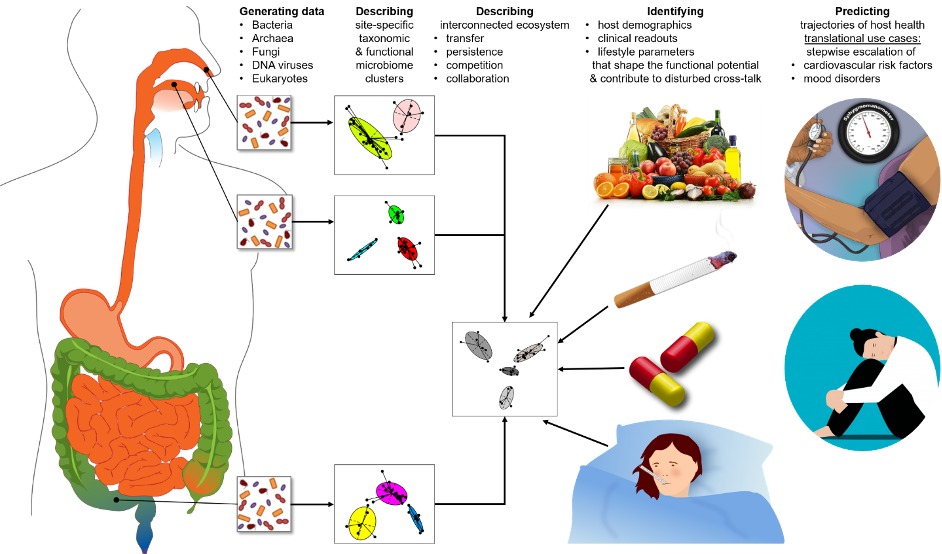
Compositional clusters in the nasal microbiome as predictors of SARS-CoV-2 infection — analysis based on a large population-based cohort study
The microbiome plays a major role in the maintenance of human health by shaping the immune system and maintaining homeostasis. The bacteria residing in the human body are capable of priming the host’s innate and adaptive immune responses to assure efficient and rapid defence against pathogens. It has been proposed that the microbiome of the anterior nares interacts with viruses and thereby modifies the risk of respiratory infections. Identifying a predisposing microbiome is challenging because it requires a long follow-up of the participants – to date, only few prospective studies among adults assessed the nasal microbiome before a viral infection. The German National Cohort (NAKO) is the largest population-based cohort study in Germany, which has collected 5,000 phenotypic information items on each of its 200,000 participants. This includes nasal swabs stored in RNA stabilizing fluids. In May 2020, NAKO conducted a targeted COVID-19 survey in all participants focusing on data about the distribution, course, and effects of COVID-19 in Germany. About 159,000 NAKO participants completed the survey; among those, 600 participants reported a symptomatic infection with SARS-CoV-2 confirmed by PCR testing. Consequently, NAKO is the only population-based cohort study worldwide that can currently link information on the nasal microbiome before the pandemic to individual infection histories during the early phase of the pandemic.
The aim of this project is to derive compositional microbiome clusters (together with their respective compositional patterns) in the anterior nares that predict the risk of SARS-CoV-2 infection and to identify determinants of the clusters. The knowledge about determinants of the compositional microbiome clusters will allow assessing the possibility of reducing risk of SARS-CoV-2 infection via changes in the microbiome. Disentangling diverse contributions and estimating causal relationships will in turn pose new analytical challenges, which will be addressed by rigorously applying best practices in statistical analysis and adapting state-of-the-art methods. The width of information available in NAKO will provide a unique opportunity to assess if predictive information in the nasal microbiome covers parts of the variance in SARS-CoV-2 infection risk not accounted for by other variables available in NAKO. Identification of high-risk individuals will help in allocating scarce resources, e.g. vaccines, during the COVID-19 pandemic. Understanding the causal factors for the risk of SARS-CoV-2 infection will also allow basic researchers in virology to look at the molecular mechanisms of the bacterial-viral interactions. This can promote discovery of new preventive drugs.
Project details
Responsible persons
Project period
July 2020 - July 2023
Cooperation partners
Medizinische Hochschule Hannover (MHH)
Helmholtz-Zentrum für Infektionsforschung (HZI)
Max Delbrück Center (MDC)
Chair for Clinical Bioinformatics, Saarland University (CCB)
Helmholtz Zentrum München – Deutsches Forschungszentrum für Gesundheit und Umwelt (HMGU)
Universitätsklinikum des Saarlandes (UKS)
Funding
Innovative Medical Research (IMF), University of Münster
